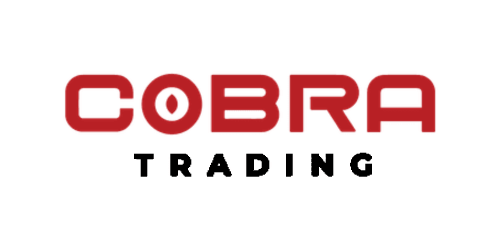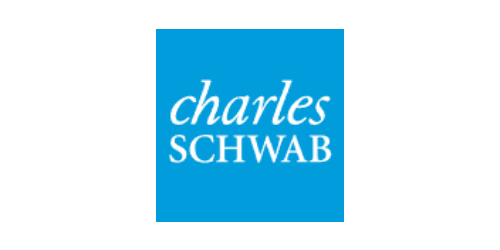The best broker for short-selling for you depends on your needs, goals, and preferences. There isn’t a go-to solution brokerage, so it is essential to consider several different factors and consider with priority the most relevant to you. These include stock trades terms, commissions, inactivity fees, customer service, trading tools, platform usability, tradable markets, market data, and more. Let’s dive into the list of the best brokers for short selling stocks and the pros and cons of each.
Best Brokers for Short Selling
1. Cobra Trading
Cobra Trading is the best day trading platform with a minimum account size of $27,000. Cobra Trading is a direct access broker was founded in 2003 by Chadd Hessing, president and CEO.

For Cobra Trading, service is very personal. They know that for day traders, even a split second matters, and that’s why they offer instant support instead of phone queues with long hold times and high-end trading tools for fast trade executions.
Being a direct access broker also means that they do not sell client’s order flow and do not receive any payments for order flow. Client orders go by direct access straight to the stock exchange.
The commissions start as low as $0.0015 per share. Besides the inhouse-trading platform Cobra TraderPro, DAS Trader Pro, Sterling Trader Pro, RealTick Express and RealTick PRO are available to clients.
Traders can use Cobra’s platforms to directly locate hard-to-borrow stocks in addition to the extensive list of easy-to-borrow shares. That makes shorting penny stocks more convenient, saving time and costs.
CobraTrading is the best direct access broker on the list and the only one mentioned that does not receive payment for order flow from venues like Citadel. The other brokers on the list are great, but you need to be aware of two main differentiators.
Retail brokers sell your order flow and receive payments from 3rd parties in return. Also, their support lacks, and it often takes 30 minutes, 1 hour or even longer in high-traffic trading times until you reach customer support or the trading desk. The point is, 0 commissions have their downsides, and you simply have to be aware of it. Okay, that’s being said, let’s proceed with some of the best retail brokers for short selling.
2. TradeStation
TradeStation is focused mainly on serving active traders and trading system developers. They constantly make progress in catering to the needs of trading beginners and market newbies.

TradeStation offers multiple account types for trading stocks, options, futures, ETFs, and cryptocurrencies. It is tailored to the needs and level of understanding of beginners, giving them access to in-depth educational tools, advanced stock screeners, and more.
In terms of costs, TradeStation also does a pretty good job. The broker charges $0 commission on stocks and the majority of its ETFs. The account minimum requirement is $2,000 if you want to access the high-end TradeStation desktop software. The margin trading rates start at 9.50% for accounts with less than $50,000 and go down to 3.5% for accounts with over $2m. The universe of supported assets is pretty diverse, including everything from stocks, ETFs, and mutual funds, to options, bonds, futures contracts, cryptocurrencies, and more.
Most importantly for short-sellers, the easy-to-borrow list is extensive, and ~3,500 stocks on NYSE, AMEX and Nasdaq are shortable easily with no additional costs.
3. Interactive Brokers
Interactive Brokers stands out as a top choice for professional day traders. The broker offers industry-leading margin rates starting at 5.83% for IBKR Pro users. These rates are much lower than what you’ll find at competitors like Fidelity or Charles Schwab. Day traders get access to advanced platforms like Trader Workstation (TWS) and IBKR Desktop.

Both platforms provide institutional-grade tools. The broker’s pricing structure is another big plus. IBKR Pro charges $0.0035 per share with a $0.35 minimum. For high-volume traders, that drops to $0.0005 per share.
The platform doesn’t use payment for order flow, which helps ensure solid order execution. Traders can reach over 150 global markets across 200 countries, including stocks, options, futures, and forex. You get comprehensive charting with 155 indicators and 85 drawing tools. Real-time market scanners and algorithmic trading add even more depth.
The mobile app brings professional features on-the-go. You’ll find advanced options chains and portfolio analytics right on your phone. Interactive Brokers also offers 24-hour trading for more flexibility. The main drawback is the steep learning curve.
New traders might feel overwhelmed at first. If you’re experienced, though, the depth of tools and competitive pricing could be exactly what you’re looking for.
4. Charles Schwab
As one of the industry leaders, Charles Schwab makes it easily to the list of top stockbrokers, especially since they acquired TD Ameritrade in 2019. Bot brands remain separate and short sellers who decide to go with Charles Schwab will ensure access to one of the most powerful and customizable trading platforms.

What makes Schwab’s offering so good are the extensive educational and research resources tailored to the needs of stock traders of all levels of experience.
With Charles Schwab, you can trade all types of instruments, including stocks, mutual funds, ETFs, bonds, options, and more.
With a $0 online commission for stocks and ETFs, Schwab is an excellent broker for those looking for short-selling opportunities. The options trading fee is significantly lower than other brokers’ offerings, although it still isn’t the lowest. The base commission for options is $0 plus $0.65 per options contract.
Those willing to give Charles Schwab a go should bear in mind that the minimum account requirement for a margin trader is set at $5,000. Furthermore, short selling stocks require an initial deposit equivalent to 50% of the instrument’s value. For shares below $2.50, this requirement can go up to 100%.
A drawback that you should keep in mind is that Charles Schwab’s stock offerings might not be as diverse as those of other short selling stocks brokers. If you want to trade a more exotic stock that it doesn’t support, you might have to go to another broker and buy it from there.
5. Webull
Webull is another worthy addition to the list with the best broker companies to short a stock. However, it is worth noting that, a while back, it wouldn’t have made this ranking as it lacked a desktop or web version and was available only as a mobile-only broker for short selling.

These days the desktop version made further progress, but the main focus of Webull is still trading via mobile devices.
Webull offers commission-free investing for over 5,000 stocks, ETFs, options, and ADRs. Furthermore, there are no platform fees or minimum account requirements, and traders can use it as a paper trading platform.
Trading on margin through a Webull brokerage account comes at a reasonable margin rate of between 6.99% and 3.99% depending on the debit balance.
Short selling fees are calculated on a daily basis depending on the market condition. Although today, Webull’s features aren’t as diverse as those of other brokers like TD Ameritrade, for example, it still has plenty to offer. These include various technical and fundamental analysis tools, a short stock availability tool, economic calendars, research agency ratings, margin accounts, advanced order entry mechanisms, and various short sell features.
Webull is an excellent choice for the not-so-demanding short-sellers, considering its relatively functional platform and reasonable fees, especially for a standard margin account. Webull is also a great alternative to Robinhood.
Bottom Line
In today’s highly volatile markets, short selling of stocks is a great way to capitalize on market downturns if you know how to apply it properly. Many hedge fund managers make millions betting on bear markets and capitalizing on looming crashes.
However, short selling of stocks isn’t for everyone. It isn’t suitable for you if you are a complete beginner as the downside risk might quickly wipe out your open-market position. Furthermore, shorting stocks can become a dangerous tool if not used with caution when trading naked call or put options or on margin.
Whether you are just starting or already have some experience trading the markets, it is always advisable to test your strategies in a demo account beforehand. If you are satisfied with their performance, you can go live. However, if they fail to deliver when shorting stocks with paper money, they surely won’t start doing so when you get to risk your capital.
To avoid all the pitfalls of short-selling and find a reliable broker for short sell orders, make sure to choose a company that can guide you through the process and that offers reasonable terms. Fortunately, there is an abundance of top brokers that can serve you well, and thanks to the continuously increasing competition, the choices are becoming more and more diverse. From newly established zero-fee Robo-advisors to industry-recognized leaders with advanced platforms, there is a best choice for all types of traders.
See Also: Best Brokers for Day Trading
How Short Selling with Your Broker Works
If an investor buys shares, then the concept is simple – he has no shares yet and places a buy order to buy shares. The ownership of the shares changes with the transaction. At the end of the transaction, the buyer who previously did not have the shares now has the shares. The seller, who previously owned the shares, now does not have the shares anymore.
How is it about short-selling shares with a broker? Is it possible to simply sell something you don’t have to go short? Actually, not directly. Imagine every investor would short stocks, and no one would buy them. At some point, more shares would have been sold than issued, and it’s impossible to sell something that does not exist. Each transaction, no matter if it is a buying or selling order, needs a counterpart.
The regulators require the broker to ensure that real-existing shares cover each short-selling transaction. The broker who offer short selling stocks to their clients acts as a middle-man. A middle-man, because the broker locates shares and lends them “virtually” to the trader.
That means those borrowed stocks will never be in the portfolio of the investor. Instead, they will be used to secure the short-selling transaction.
So what happens when investors use trading platforms to short stocks is that the online broker checks if the shares are available to borrow from a lending network. Many specialized direct market access brokers have securities lending specialists in their team that locate million of shares from counterparty relationships.
A good short selling broker has an integrated short locate system within the trading platform that enables investors to short sell stocks. An industry-leading short inventory with extensive short locates and borrows lists is the key to successful short selling.
There are two types of shares to borrow, easy-to-borrow shares and hard-to-borrow shares. Easy-to-borrow shares are often all those shares of a stock with millions of daily trades shares, high market cap or listed on the NYSE or Nasdaq 1,000. However, penny stocks or OTC traded stocks, or stocks with low daily tradable volume, are often hard-to-borrow stocks.
Easy-to-borrow stocks typically can be shorted without a fee intraday. It’s like a service from the broker offered to active day traders to enable them to go long and short continuously during a trading day. However, overnight borrow fees still apply for easy-to-borrow shares. So when a trader enters a short position, online brokers borrow the shares from their inventory to secure the short position of the trader. And they charge fees if the trader holds it longer term.
Hard-to-borrow shares are different in terms of the fee structure. Locating such stocks is expensive, and the stock loaner who provides the shares demands a high hard-to-borrow fee. Shorting hard-to-borrow shares works this way: The broker locates the shares and makes an offer to the short-seller regarding the conditions (borrow fees). If the short-seller accepts the fees, the broker lends the shares for the agreed fee, and the trader can now sell shares short.
Investors should always consider the fees if they want to short stocks.
Experienced traders and professional traders know about the benefits of this type of trading, and especially day traders frequently use their margin accounts to short sell stocks by using a short-locate tool provided by the broker. Trading beginners often use momentum trading strategies to short sell shares if the momentum provides a short entry.
The Financial Industry Regulatory Authority (FINRA), Securities and Exchange Commission (SEC) and Commodity Futures Trading Commission (CFTC) keep a close eye on online broker activity to ensure that all short sales are in line with regulations.
FAQs
What Broker Is Best for Shorting US-Listed Stocks?
A broker with a dedicated team of securities lending specialists, an extensive borrow list, and an integrated short locate system within the trading platform is the best broker for shorting stocks. Our list ranks the best brokers for short selling specialized in short selling U.S.-listed stocks.
Do You Need a Broker to Short a Stock?
Yes. You need a broker to short a stock because the broker acts as an intermediary between the investor and the stock exchange. The broker ensures that lent stocks secure the short position for a short-seller.
